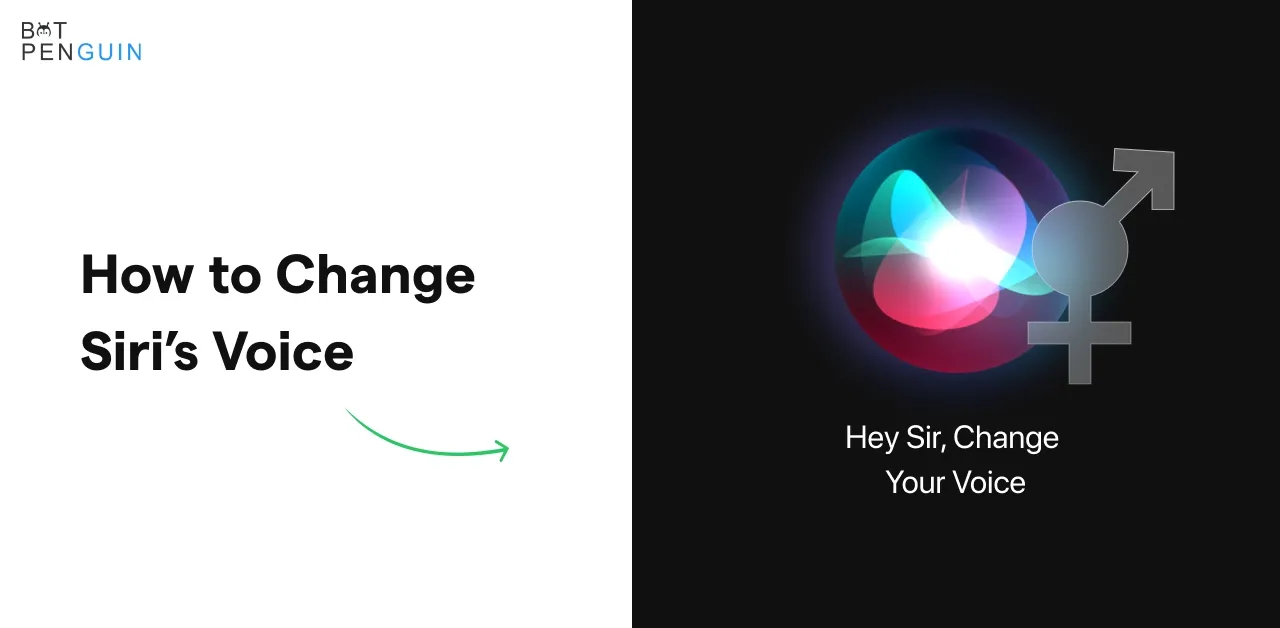Have you ever called a customer support line and heard a robotic voice asking you to press specific numbers for different options? That's an example of Interactive Voice Response (IVR) in action!
Interactive Voice Response (IVR) enables automated communication through voice commands or keypad inputs between computers and humans. It serves as a crucial component in various customer service and business processes.
IVR uses prerecorded voice prompts or text-to-speech technology to provide options to callers. Callers can then respond by speaking or using their telephone keypad to select from the available menu options.
The system uses speech recognition or DTMF (Dual-Tone Multi-Frequency) tones to interpret these responses and route the call accordingly.
IVR is a technology that continues to evolve, offering innovative solutions for enhanced customer interactions.
So continue reading to find out more about Interactive Voice Response.
What is IVR?
IVR stands for Interactive Voice Response. IVR is an AI-automated telephone system that allows users to interact with a computer-generated voice using keypad inputs or voice commands.
You've probably encountered IVR systems when calling customer support lines, where you can press different numbers for different options.
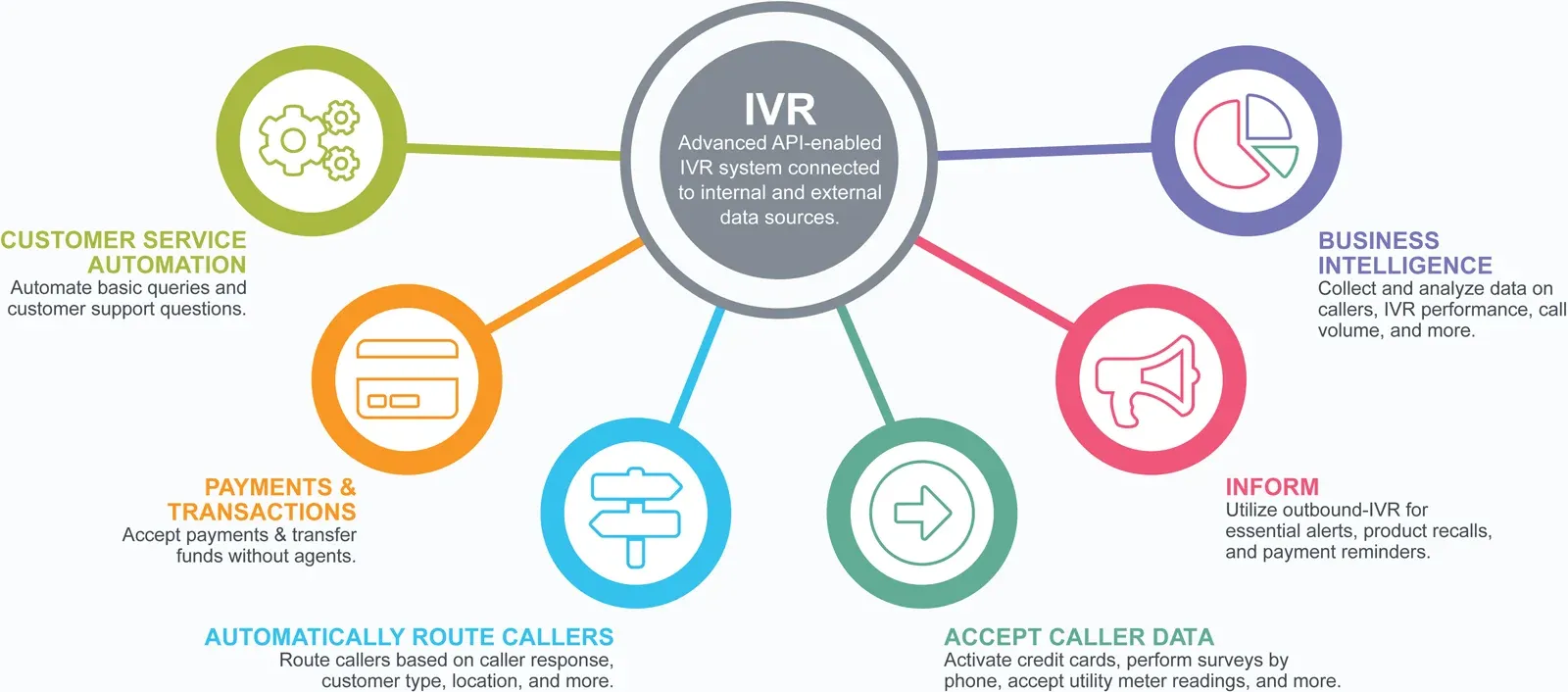
IVR uses voice recognition and touch-tone technology to process and respond to caller inputs. It's like having a virtual assistant guiding you through a phone call!
What are the Features of Interactive Voice Response (IVR)?
Now that we know the basics let's take a closer look at some of the features that make IVR systems so handy.
Call Routing
IVR systems intelligently route incoming calls to the appropriate departments or agents based on the caller's input. It ensures callers are directed to the right people, saving time and improving efficiency.
Menu Prompts
With IVR, businesses can create customized menu prompts that guide callers through various options. It allows callers to self-select the information or services they need.
Doing this reduces the need for human intervention and provides a more seamless experience.
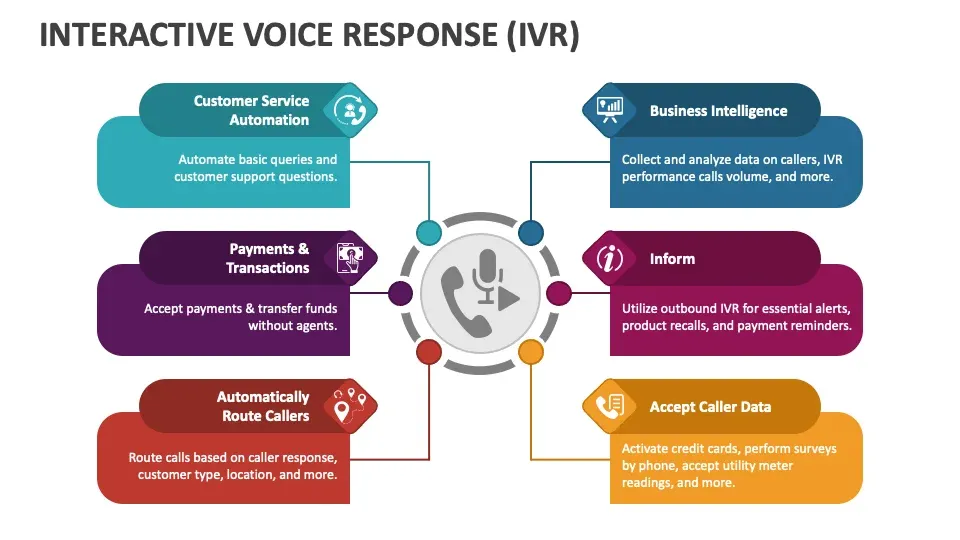
Voice Recognition
Thanks to advanced voice recognition technology, IVR can understand and respond to voice commands from callers. This feature adds a layer of convenience, making it easier for callers to interact with the system without using their keypad.
Information Retrieval
IVR systems can retrieve real-time information from databases, providing callers with up-to-date information such as account balances, order statuses, or FAQs. It not only saves time for businesses but also empowers customers with readily available information.
Types of Interactive Voice Response (IVR)
IVR systems come in different types, each offering unique functions and capabilities. Let's explore the most common types of IVR that you may encounter.
Inbound IVR
Inbound IVR handles incoming calls and guides callers through menus to help them find the necessary information or service. It can also collect valuable data from callers, such as feedback or survey responses.
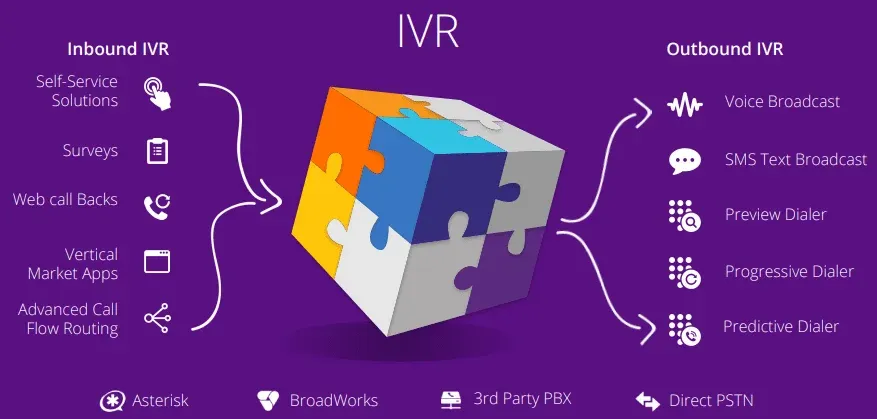
Outbound IVR
Outbound IVR, on the other hand, is used for proactive communication. It can automatically make calls to deliver prerecorded messages, appointment reminders, or payment notifications.
Visual IVR
Visual IVR takes the traditional IVR experience to the next level by adding a visual interface. Callers can access menus and options through a smartphone app or web portal. Doing this makes the interaction more intuitive and engaging.
How Does Interactive Voice Response (IVR) Work?
This section will dive deeper into the IVR system architecture, its call flow process, and how it integrates with voicemail.
The Interactive Voice Response (IVR) System Architecture
A complex architecture enabling it to function seamlessly is at the heart of every IVR system. The typical IVR system consists of three components:
Telephony equipment
Telephony equipment is a hardware component that includes interfaces, cards, and servers. It enables the system to connect to the telephony network and handle incoming and outgoing calls.
IVR software
The IVR software component manages the call flow process and interprets caller inputs. It also responds with prerecorded messages or redirects the call to appropriate agents.
Databases
Databases store and retrieve information based on caller inputs, including customer profiles, product information, or account balances.
Working together, these three components create a system that can handle large volumes of calls, process caller inputs, and provide appropriate information or services.
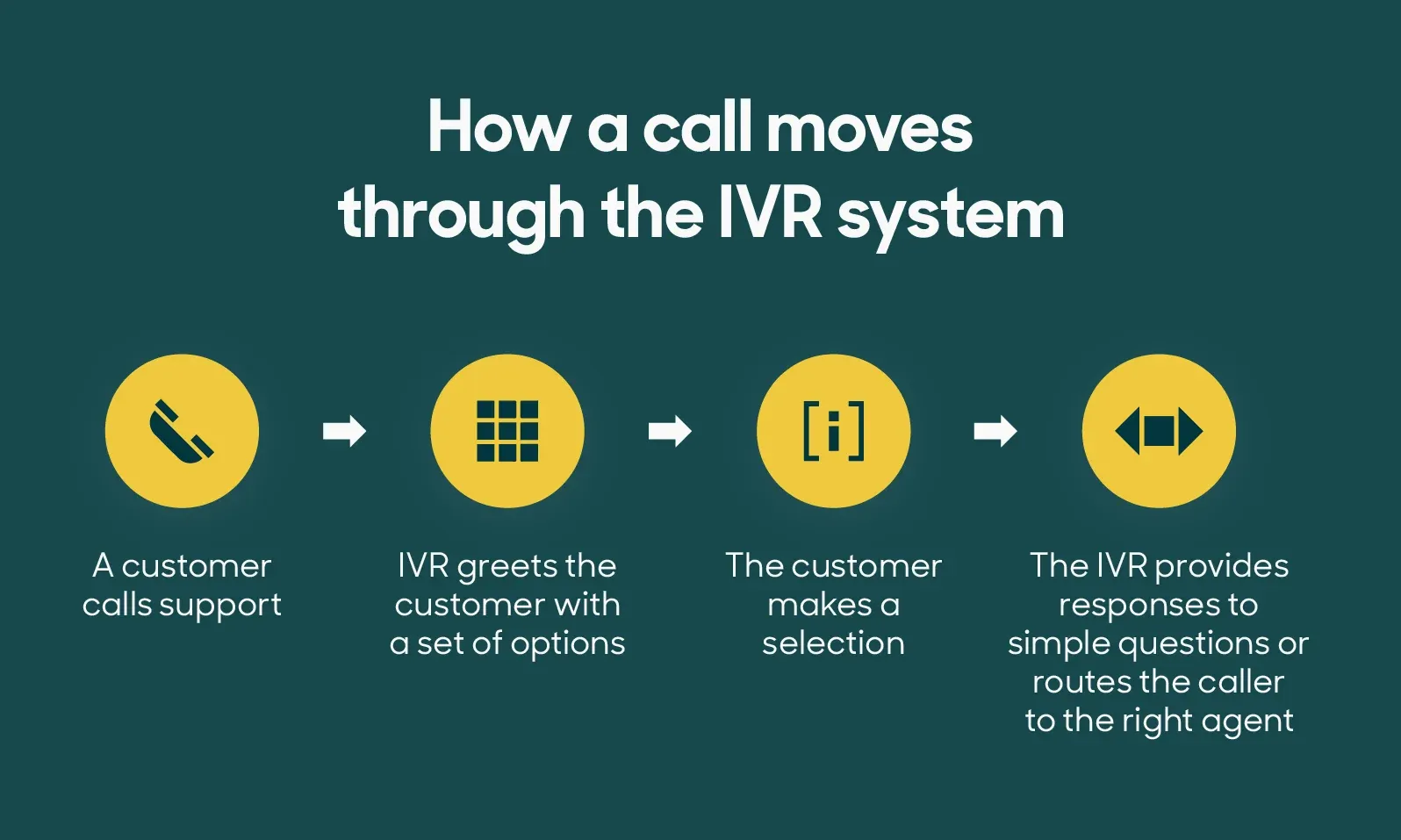
Call Flow Process
Now that we know the essential components of the IVR system, let's take a closer look at how the call flow process works.
Call routing
When a call comes in, the IVR system uses automatic call routing to direct the caller to the appropriate IVR menu based on the reason for the call.
Menu prompts
The system then presents the caller with a menu of options using menu prompts. The caller interacts with the system by pressing keys on their phone or using voice commands.
Information retrieval
Based on the caller's input, the IVR system retrieves information from the database to provide relevant information or services. Such services include account balances, order statuses, or FAQs.
Call redirection
The IVR system can redirect the call to the appropriate agent or department. It will do this based on the caller's input if required.
If required Voicemail Integration
Another feature of IVR is its integration with voicemail. IVR can be programmed to manage voicemail messages and send notifications to staff when a new message is received.
For example, if a customer leaves a voicemail after hours, the IVR system can automatically log the message and send an email alert to the relevant staff member. It ensures that customer inquiries are promptly addressed, even outside regular business hours.
The Benefits of Interactive Voice Response (IVR)
In this section, we will dive into the numerous benefits of IVR and how it can revolutionize your communication strategies.
Cost-Effective Communication
No one wants to spend a fortune on communication systems. With IVR, you can say goodbye to expensive hardware and cumbersome infrastructure. By implementing IVR, you can drastically reduce costs associated with traditional phone systems.
IVR relies on software-based solutions easily integrated into your existing communication infrastructure.
IVR enables you to place and receive calls over the Internet by utilizing the capabilities of Voice over Internet Protocol (VoIP). Costly phone lines and equipment are no longer required.
Improved Customer Experience
Nothing beats a satisfied customer; IVR can help you achieve that. By offering self-service options and personalized interactions, IVR enhances the overall customer experience.
Imagine your customers accessing information and receiving assistance 24/7 without waiting for a human agent. IVR systems can handle basic tasks such as providing account balances, answering frequently asked questions, and facilitating payments.
It reduces wait times and empowers customers to find answers at their convenience.
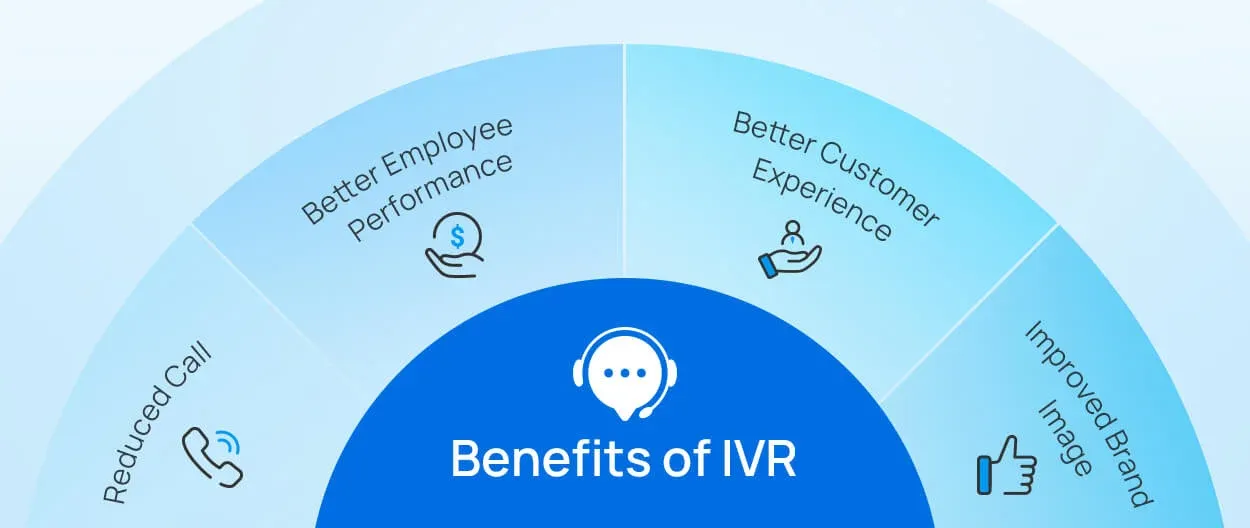
Increased Efficiency and Productivity
In a fast-paced business environment, efficiency is crucial. IVR can streamline your communication processes and improve productivity across the board.
With IVR, calls can be automatically routed to the most appropriate department or agent based on predefined rules. It eliminates the need for manual call transfers and reduces the time customers have to spend waiting for the right person to assist them.
Additionally, IVR can collect and organize relevant customer information, ensuring that agents are better prepared to handle each call.
Enhanced Call Routing and Scalability
As your business grows, so does the demand for effective call routing and scalability. IVR systems excel in providing a dynamic and scalable solution for call handling.
By implementing IVR, you can quickly scale your communication infrastructure to accommodate peak call volumes. IVR allows you to handle increasing calls without compromising on service quality.
With intelligent call routing capabilities, IVR ensures that calls are distributed evenly among available agents. It lessens the waiting time and improves customer satisfaction.
The Role of Interactive Voice Response (IVR) in Various Industries
In this section, we will explore the versatile applications of IVR in different industries.
Revolutionizing Healthcare
IVR is pivotal in improving patient care and optimizing administrative processes in the healthcare industry.
Imagine patients being able to receive automated appointment reminders, check test results, or even request prescription refills - all with a simple phone call.
With IVR, healthcare providers can streamline operations, reduce administrative overhead, and provide patients with more efficient and personalized care.
Transforming Banking
In the fast-paced world of banking, IVR is revolutionizing customer service. Customers no longer have to wait in long queues for basic transactions.
With simple voice commands, IVR systems can facilitate balance inquiries, fund transfers, and bill payments. Banks can provide round-the-clock service through IVR, enhance security measures, and improve customer satisfaction.
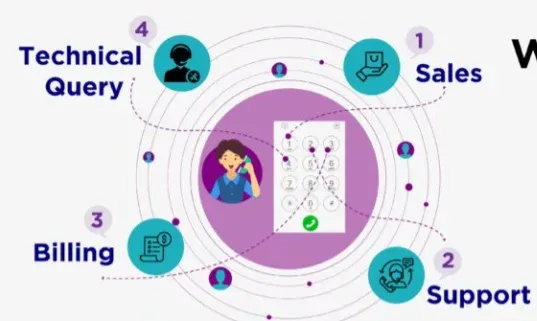
Empowering Retail
IVR is paving the way for enhanced customer experiences and streamlined operations in the retail industry. IVR systems allow customers to check order status, track deliveries, or even initiate returns - all without speaking to a live agent.
Furthermore, IVR can provide personalized recommendations based on customer preferences and purchase history, promoting upselling and cross-selling opportunities.
With IVR, retailers can provide efficient and personalized service, increasing customer loyalty and higher sales conversion rates.
Enhancing Travel and Hospitality
IVR transforms how guests interact with businesses in the travel and hospitality industry. IVR systems can provide automated flight status updates and hotel reservations or offer local recommendations and tips.
With IVR, travel and hospitality businesses can make guests feel valued and well-informed, leading to memorable experiences and positive reviews.
Selecting an Interactive Voice Response (IVR) Solution
This section will dive into the crucial task of selecting the right IVR solution for your business.
Choosing the best IVR system can be overwhelming with so many available options. However, with the right factors in mind and some best practices, you can navigate the maze and find the perfect IVR solution for your needs.
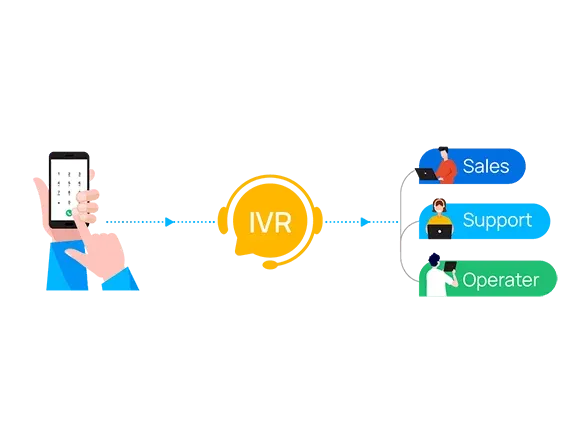
Factors to Consider While Selecting an Interactive Voice Response (IVR) Solution
When selecting an IVR solution, there are several important factors to consider:
Business Needs
What are the critical pain points that your business needs to address with an IVR system? Do you need to improve response times, reduce wait times, automate specific processes, or enhance customer experiences?
Understanding your business needs will help identify the most beneficial IVR system type.
Industry-Specific Features
Different industries have unique IVR requirements. For example, healthcare may require secure data transmission, while retail may need personalized recommendations. Ensure that the IVR system you choose has the specialized features that your industry needs.
Scalability
Your business needs may change, so selecting an IVR solution that can grow with you is essential. Ensure your chosen system can scale to accommodate increasing call volumes, diverse functionalities, and changing business requirements.
Integration with Existing System
The IVR system should integrate well with your communication infrastructure, such as ACD or CRM software. It will ensure the system works seamlessly with your current setup, saving you time and money and avoiding data duplication.
Ease of Use
Finally, the IVR system should be easy to use and require minimal training for your employees to adapt. Intuitive interfaces, user-friendly design, and precise documentation can ensure easy adoption by your team.
Best Practices for Choosing an Interactive Voice Response (IVR) System
Once you have considered these factors, you can use some best practices to ensure you choose the best IVR solution for your business. These include:
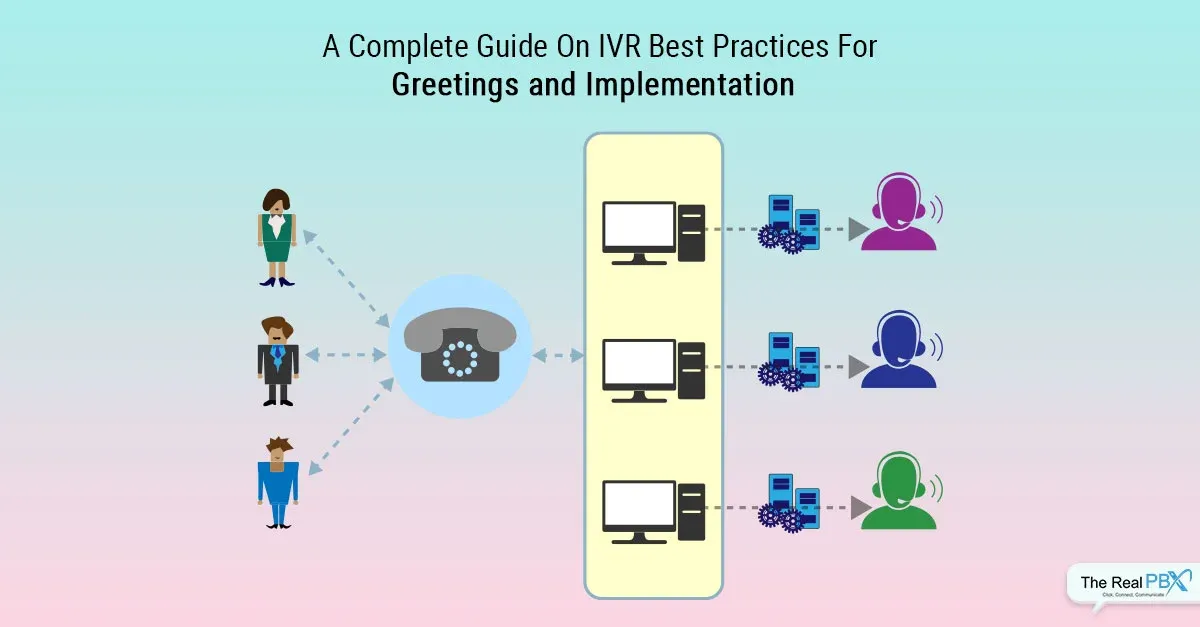
Research
Carry out thorough research on the different IVR solutions available in the market. Compare their features, pricing, and customer reviews to identify which system works well for your business needs.
Demo
Request a demo of the IVR system that you are interested in. It can allow you to test the system's functionality in real-time and ensure it meets your needs.
Analyze Total Cost of Ownership (TCO)
When assessing IVR systems, focus on more than just the upfront cost. Instead, consider the total cost of ownership over time, including installation, support, maintenance, and software updates.
Seek References
Ask for references from the IVR vendor and speak to other businesses using the solution to gauge their experience with the product and the vendor.
Strategic Implementation
Implement the IVR system in a phased approach to ensure your team has adequate time to acclimate and adjust as needed. Strategic implementation will also enable your business to identify any issues that may arise and handle them effectively.
Use Cases of Interactive Voice Response (IVR)
In this section, we will explore some practical use cases of IVR that can benefit businesses across various industries.
Outbound Call Notifications
Stay connected with your customers through outbound call notifications.
Outbound call notifications are a valuable application of IVR that allows businesses to reach out to customers proactively. With IVR, businesses can automate sending reminders for upcoming events, updates on order status, or even alerts for important announcements.
By leveraging IVR for outbound call notifications, businesses can save time, reduce manual efforts, and ensure effective customer communication.
Appointment Reminders
Never let a customer forget, thanks to IVR appointment reminders.
In industries where appointments are crucial, IVR can be vital in avoiding no-shows and missed appointments. With IVR appointment reminders, businesses can automate sending personalized reminders to customers via phone.
Whether it's a healthcare provider reminding patients of their upcoming appointments or a salon ensuring clients don't miss their haircuts, IVR appointment reminders save time. It also improves efficiency and enhances customer satisfaction.

Payment Processing
Seamlessly process payments with IVR.
IVR can transform the way businesses handle payment processing. By integrating IVR into their
systems, businesses can offer customers the convenience of making payments through phone calls.
Whether bill payments, donations, or subscription renewals, IVR payment processing enables secure and automated transactions, reducing the need for manual intervention. It saves time and reduces the risk of errors. Doing this provides customers with a hassle-free payment experience.
Customer Surveys
Get valuable feedback from customers using IVR surveys.
Customer feedback is essential for businesses to optimize their products, services, and processes. IVR customer surveys provide an efficient way to gather feedback from customers.
Automating the survey process through IVR allows businesses to reach out to many customers, collect valuable insights, and gauge customer satisfaction levels.
IVR surveys are quick, convenient, and can be accessed at the customer's preferred time, enhancing response rates and yielding actionable data for business improvement.
Future of Interactive Voice Response (IVR): Technology Advancements
As we look into the future, we can expect significant advancements in IVR technology that will revolutionize communication and customer experiences. Some of these advancements might include:
Natural Language Processing (NLP)
By integrating Natural Language Processing (NLP) capabilities, IVR systems will become more intelligent. It will enable IVR systems to understand and interpret customer requests and respond accordingly. Doing this enhances the accuracy and effectiveness of automated interactions.
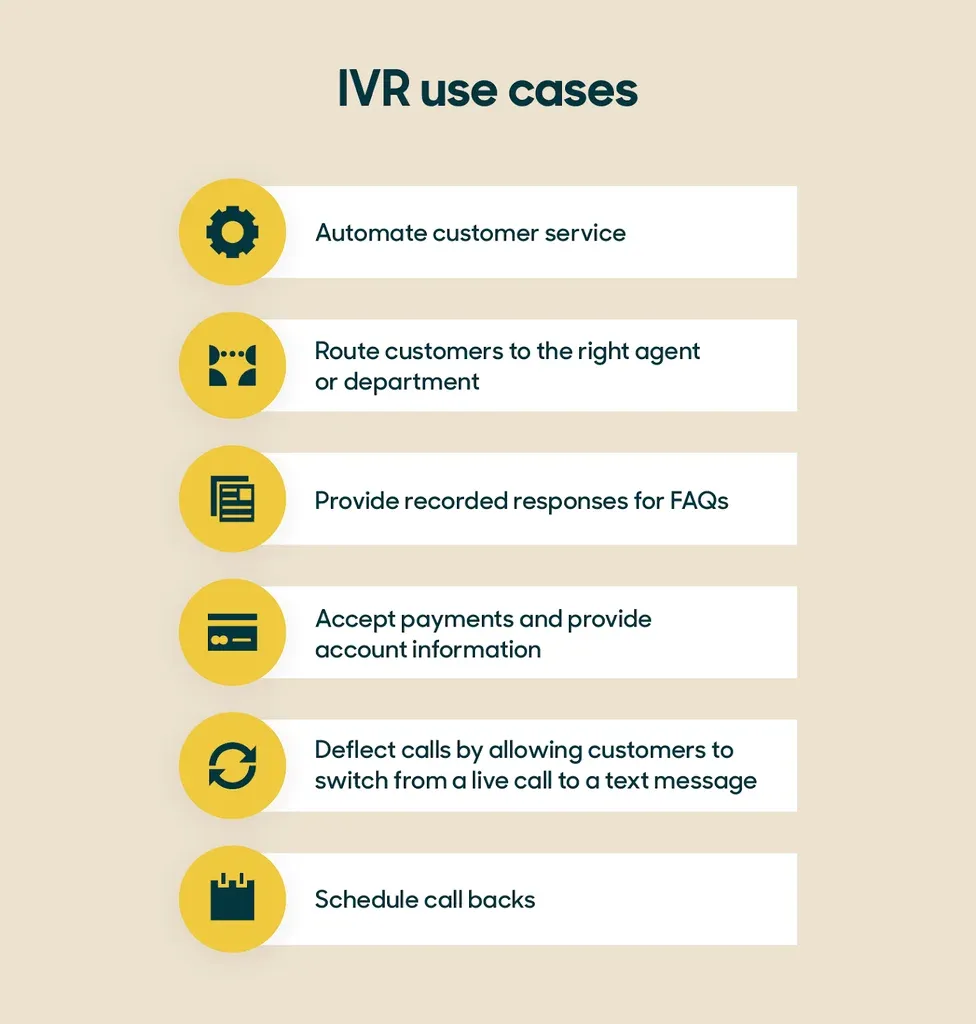
Speech Recognition
Advancements in speech recognition technology will allow IVR systems to understand better and interpret customer speech in various languages and accents. It will enhance the user experience and make IVR systems more accessible and inclusive.
Integration with AI and Machine Learning
Integrating IVR systems with Artificial Intelligence (AI) and Machine Learning (ML) will open new possibilities for personalized customer interactions. IVR will be able to analyze customer preferences, predict needs, and provide tailored solutions, resulting in more efficient and satisfying customer experiences.
Conclusion
In conclusion, Interactive Voice Response (IVR) is a powerful tool that allows businesses to automate and enhance customer interactions through voice-based communication.
By understanding IVR works, businesses can streamline processes, improve customer experiences, and drive success.
The global IVR market will reach $6.1 billion by 2029. It is growing at a CAGR of 5.7% from 2022 to 2029. The increasing adoption of AI and ML in IVR systems is one of the major factors driving the market's growth.
At its core, IVR can facilitate self-service and streamline communication processes. It offers callers options through prerecorded voice messages or text-to-speech technology.
Callers can respond using their voice or keypad, and the system interprets these inputs to direct the call appropriately. It saves time, enhances efficiency, and ensures a consistent and user-friendly experience for callers.
IVR is a versatile solution that can meet the unique needs of any industry.
Embrace the potential of IVR and unlock new possibilities for your business today!
Frequently Asked Questions (FAQs)
Can IVR systems be customized for different industries?
IVR systems can be customized to meet various industries' specific needs and requirements. It includes customizing prompts, menus, and call flows to align with the industry's terminology and processes.
What types of services can IVR systems provide?
IVR systems can provide various services, such as balance inquiries, account information, appointment scheduling, order status tracking, payment processing, customer surveys, technical support, and routing calls to the appropriate departments.
Is IVR capable of handling multiple languages?
Yes, IVR systems can be programmed to support multiple languages. Callers can choose their preferred language at the beginning of the call, and the system will offer prompts and instructions in that language throughout the call.
Can IVR integrate with other systems?
IVR can integrate with other systems, such as customer relationship management (CRM), helpdesk software, databases, and third-party applications. It enables seamless information exchange and enhances call-handling efficiency.



